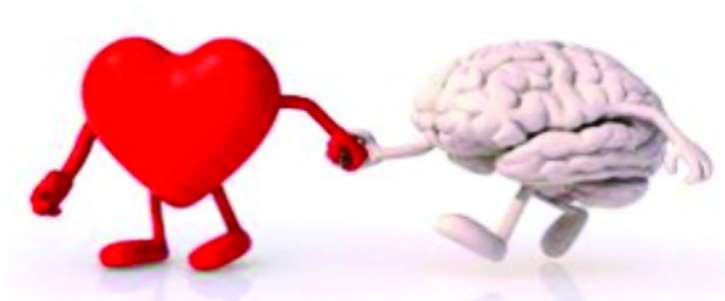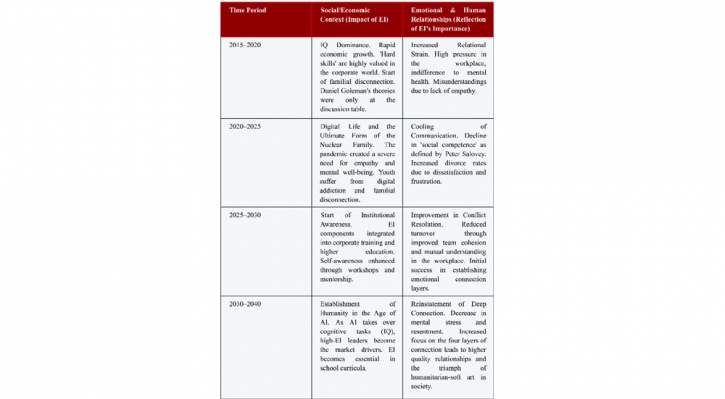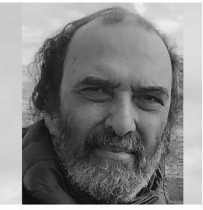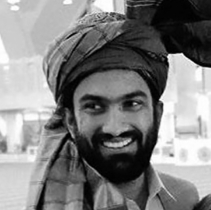
After many years, Ethika and Tama met under the soft light of a coffee shop. As their laughter faded and they dove into life's stories, their discussion eventually landed on the complex web of human relationships. Why these relationships make us laugh, cry, and sometimes shatter in an instant—in trying to unravel this mystery, they challenged an old societal notion.
Our supposedly progressive society has always hailed Intelligence Quotient (IQ) as the driver of life, as if the brain alone can navigate life's complex path. But through their discussion, Ethika and Tama realized that beneath the surface of intelligence, a cooler, deeper force is at play: Emotional Intelligence (EI). Tama recalled the groundbreaking discovery of the scholar Daniel Goleman. Goleman was the first to show that certain human skills—the ability to feel, understand, control, and correctly express emotions—are, in fact, more effective indicators of success than mere cognitive intelligence. Emotional Intelligence is the silent master, conducting the symphony of human relationships, a deep current flowing beneath the surface of a regular life.
Ethika used a beautiful analogy to explain this further. She said, if we consider human relationships a vast garden, then IQ only shows how to plant the seeds, but EI determines whether those seeds will sprout and flourish. Reader, just think: the despair of your friend that wasn't voiced, the annoyance of a colleague that remained unexpressed, or the momentary joy of a partner—these are the fragrance, the soil, and the sunshine of our social life! Salovey and Mayer theorized as far back as 1990 that high-EI individuals, like skilled gardeners, can read those subtle cues, preventing the delicate relationship from withering due to neglect or misunderstanding.
Tama agreed with her friend, saying, "You are absolutely right, my friend, Emotional Intelligence is equally, if not more, crucial in the workplace." Emotionally intelligent leaders do not merely command loyalty through power, but win the hearts of their followers through empathy, understanding, and responsiveness. Citing a Harvard Business Review study, Tama noted that managers who exhibit EI ensure greater participation and significantly reduce employee turnover—because emotions are the currency of cooperation.
Imagine a boardroom meeting as a turbulent sea: the leader with EI acts as the lighthouse—guiding the ship safely through the chaos, sensing the rumblings beneath the water like anxiety, excitement, or resistance, and calming them before they turn into full-blown storms. Conversely, the outcome is disastrous when a low-EI leader manages a high-EI staff member, leading to a collision between a sensitive spirit and an unfeeling wall.
At this point, Tama paused, reflecting on the essence of their conversation, and recited a short poem born from the heart's emotion, taking their discussion deeper:
“The Quiet Compass
Beneath the unspoken, unrevealed words, the broken brook flows,
Where hearts’ sighs, delves into emotions, perceives what the mind foregoes. A glance, a sigh, a subtle touch,
How can it really heal the distance that words clutch?
Empathy blooms where gravity with solemness stays,
Guiding human souls through life’s intricate mazes.
Not just intellects, but the heart’s humanitarian-soft art
Weaves the invisible threads, connects the dots to bind each heart.”
Ethika, moved by the verse, reinforced that the impact of EI extends beyond professional circles to serve as a guide and mediator in families, friendships, and romantic relationships. It enables us to put ourselves in another's place, to read the non-verbal coded language of sighs, signals, and unwritten expectations. Tama immediately recalled Peter Salovey's statement that EI leads to 'social competence'—which transforms mere physical proximity into a meaningful relationship. It’s like tuning a musical instrument: harmony is achieved only when every string is finely tuned.
It was here that Ethika introduced an even deeper truth: humans ideally connect on four distinct layers: Intelligence, Emotional, Physical, and Spiritual. Sadly, 90% of people in real life fail to connect solidly on even two layers. But if two layers, especially the emotional or intellectual, align, it works like a miracle, naturally fostering a sense of physical proximity as well.
Tama agreed, stating that true change isn't just in brilliance or simple emotional attachment, but in 'Emotional Intelligence'. This is what makes people feel humanitarian beneath their skins, makes them feel worthy as human beings, and creates a deep psychological connection that leads to compatibility. High EI equips people to handle conflict in a pleasant way—by not hurting others, by forgiving, by not harboring resentment, and even by wishing success upon those who caused pain. Neuroscientific research supports this: emotional control is linked to improved
mental health, reduced stress, and more fulfilling relationships. EI, in essence, is the compass assisting us in navigating the complicated archipelago of desires and feelings.
Ethika concluded by saying that in a world increasingly controlled by algorithms and Artificial Intelligence, the human heart will not be replaced. EI reminds us that an ocean of emotions lies beneath every negotiation, every handshake, every gaze. It is the invisible thread that binds the fabric of society, the unheard poetry of daily interaction, and the wisdom that makes relationships last.
This discussion reflects a profound truth when viewed through the lens of Bangladesh's social context from 2015 to 2040. During this period, Bangladesh's family structure has undergone a massive change. Where the influence of the joint family system was somewhat present in 2015, by 2025, it has largely transitioned to nuclear families (divorce rates are also increasing, per BBS 2023). With the decline in mental and emotional support in these nuclear families, the necessity of Emotional Intelligence has skyrocketed.

As we move along this path, we must understand that our greatest asset as human beings is our capacity for feeling, empathy, and connection.
Dr. Tarnima Warda Andalib is currently working as an Assistant Professor at BRAC University and as a Global Consultant Director at the Oxford Impact Group in the United Kingdom.
Dauwood Ibrahim Hassan is currently a regular Master's student in the Economics Department at Jahangirnagar University, while also being employed as a Project Analyst at UNDP Bangladesh and working in the Marketing Department at IDLC Finance PLC.





































